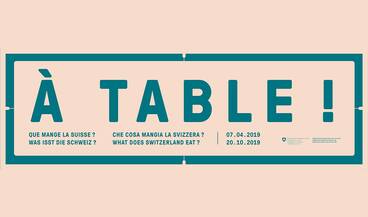Today
10:00 - 17:00
accessibility.openinghours.today-in Château de Prangins
Today at the Château de Prangins10:00 - 17:00
accessibility.openinghours.today-in Château de Prangins
Today at the Château de PranginsMonday closed
Tuesday till Sunday 10:00 - 17:00
Monday closed
Tuesday till Sunday 09:30 - 17:30
Christmas Eve Today 10:00 - 17:00
Christmas Day 25.12.2025 closed
St. Stephen's Day 26.12.2025 10:00 - 17:00
29.12.2025 10:00 - 17:00
Labour Day 31.12.2025 10:00 - 17:00
New Year's Day 01.01.2026 closed
Berchtold's Day 02.01.2026 10:00 - 17:00
Good Friday 03.04.2026 10:00 - 17:00
Easter Sunday 05.04.2026 10:00 - 17:00
Easter Monday 06.04.2026 10:00 - 17:00
New Year's Eve 01.05.2026 10:00 - 17:00
Ascension 14.05.2026 10:00 - 17:00
Whitsun 24.05.2026 10:00 - 17:00
Whit Monday 25.05.2026 10:00 - 17:00
Swiss National Day 01.08.2026 10:00 - 17:00
accessibility.openinghours.special_opening_hours.link
Show all10:00 - 17:00
accessibility.openinghours.today-in Château de Prangins
Today at the Château de PranginsMonday closed
Tuesday till Sunday 10:00 - 17:00
Monday closed
Tuesday till Sunday 09:30 - 17:30
Christmas Eve Today 10:00 - 17:00
Christmas Day 25.12.2025 closed
St. Stephen's Day 26.12.2025 10:00 - 17:00
29.12.2025 10:00 - 17:00
Labour Day 31.12.2025 10:00 - 17:00
New Year's Day 01.01.2026 closed
Berchtold's Day 02.01.2026 10:00 - 17:00
Good Friday 03.04.2026 10:00 - 17:00
Easter Sunday 05.04.2026 10:00 - 17:00
Easter Monday 06.04.2026 10:00 - 17:00
New Year's Eve 01.05.2026 10:00 - 17:00
Ascension 14.05.2026 10:00 - 17:00
Whitsun 24.05.2026 10:00 - 17:00
Whit Monday 25.05.2026 10:00 - 17:00
Swiss National Day 01.08.2026 10:00 - 17:00
accessibility.openinghours.special_opening_hours.link
Show allOpen Air Cinema
Révolution silencieuse de Lila Ribi
92’ | français
Documentaire, 2016
Visions du Réel 2016
Age légal / suggéré 6 / 12 ans
Cédric, paysan dans le Jura vaudois, décide d’être fidèle à ses convictions en abandonnant l’agriculture conventionnelle pour se lancer dans l’agriculture biologique. Au risque de perdre les moyens de faire vivre sa famille, il vend ses vaches et se lance dans la culture de blés anciens. Le film suit son parcours, montrant ses moments de doute, mais aussi sa réussite pour devenir un producteur d’une nourriture vivante, saine et pleine de saveurs.
Les projections auront lieu par tous les temps.
Tarif unique : CHF 10.-, visite du musée comprise.
En collaboration avec Visions du Réel, GSK et Base-Court.
Avenue du Général Guiguer 3
1197 Prangins

“Show me what you eat and I will tell you who you are.” In a world where sharing pictures of your latest meal on social media is all the rage, the familiar adage takes on a whole new relevance. With endless information at our fingertips, knowing where food comes from, consuming seasonal produce and enquiring into the working conditions of everyone involved in its production have become major concerns. Decisions on what to eat are influenced by social, political and economic considerations. Food is not just about sustenance : it is also a nexus of cultural and medical practices and an expression of religious and ethical choices.
Taking its cue from the times in which we live, the exhibition “À table ! What does Switzerland eat ?” sets out to explore what’s bubbling away in the cooking pots of Homo helveticus. Swiss culinary culture is constantly changing, and this is reflected in the wide variety of its regional specialities. What is our food heritage ? Where do its roots lie ? Combining a scientific, historical and sometimes playful approach, not forgetting the gourmet side of the topic, this exhibition serves up a fascinating and diverse menu covering everything from table manners and the myriad ways of preparing and consuming food to the mechanisms behind famine and plenty, taboos and culinary trends.
In association with Slow Food and La Maison de la Rivière, the exhibition at the Swiss National Museum – Château de Prangins turns the spotlight on French-speaking Switzerland, with a new display and objects yet unseen. It also emphasizes the social ties created via family recipes and the knowledge shared through professional innovations, while local production, biodiversity and plant heritage will be examined season by season in the museum’s kitchen garden – the largest conservatory of forgotten vegetable varieties and rare fruits in Switzerland.